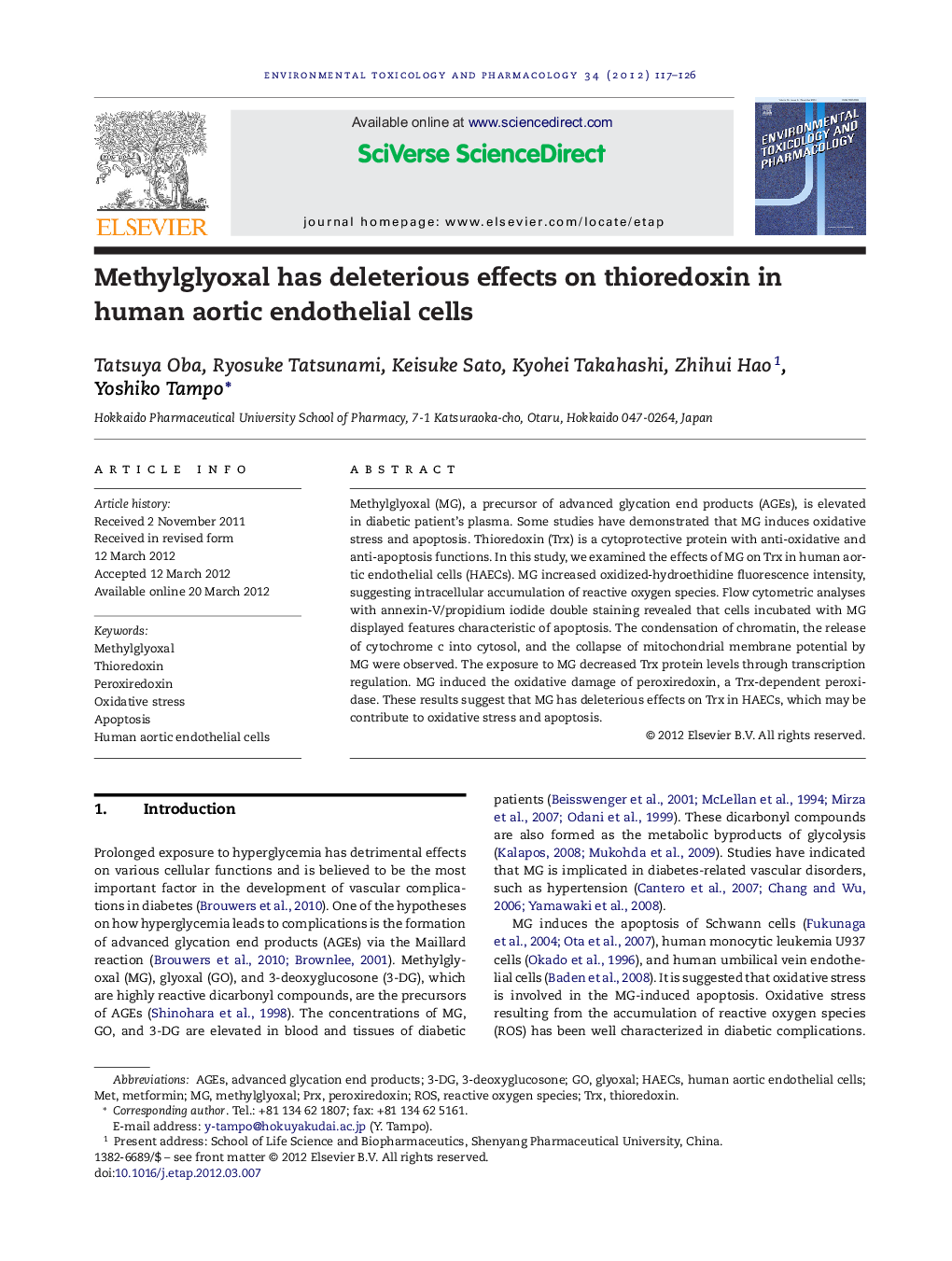| Article ID | Journal | Published Year | Pages | File Type |
|---|---|---|---|---|
| 2583439 | Environmental Toxicology and Pharmacology | 2012 | 10 Pages |
Methylglyoxal (MG), a precursor of advanced glycation end products (AGEs), is elevated in diabetic patient's plasma. Some studies have demonstrated that MG induces oxidative stress and apoptosis. Thioredoxin (Trx) is a cytoprotective protein with anti-oxidative and anti-apoptosis functions. In this study, we examined the effects of MG on Trx in human aortic endothelial cells (HAECs). MG increased oxidized-hydroethidine fluorescence intensity, suggesting intracellular accumulation of reactive oxygen species. Flow cytometric analyses with annexin-V/propidium iodide double staining revealed that cells incubated with MG displayed features characteristic of apoptosis. The condensation of chromatin, the release of cytochrome c into cytosol, and the collapse of mitochondrial membrane potential by MG were observed. The exposure to MG decreased Trx protein levels through transcription regulation. MG induced the oxidative damage of peroxiredoxin, a Trx-dependent peroxidase. These results suggest that MG has deleterious effects on Trx in HAECs, which may be contribute to oxidative stress and apoptosis.
► Methylglyoxal decreases thioredoxin proteins at the transcriptional level. ► Methylglyoxal induces the oxidative damage of peroxiredoxin. ► Thioredoxin is susceptible to methylglyoxal rather than glyoxal or 3-deoxyglucosone.
